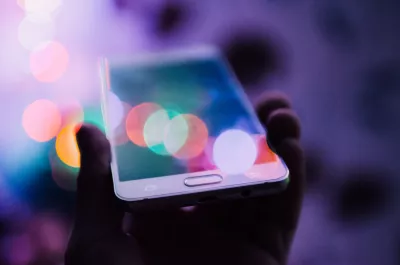Generation Z And The New Relation To Travel
What is Generation Z?
Giving names to groups has always been popular since the beginning of humanity. We like drawing lines between people in order to categorize them and infere some common traits. A common attribute to separate people is their age.
That is why we created new groups: the generations. After the generation Y comes the generation Z, which members are called Gen Zer. This new generation gathers all people born after 1995. The line was drawn because ethnologists think the Gen Zer members have a different relationship to technology.
This classification is consistent with the Theory of Generations created by William Strauss and Neil Howe.
To understand what is a gen zer - just look at today's teenagers. They live in a completely different world compared to their predecessors. For them, digital services and technologies are an integral part of everyday life. These teenagers prefer prestigious occupations, those that do not require hard physical labor, and which most often require a high level of training and higher education.
Their mindset is technology-friendly, thanks to the fact that they have always lived with the Internet. Indeed, the Internet started to rise in the nineties. Children who are born before this date lived during two different periods: without and with the Internet while they were in age to understand and be impacted by this change. It is very interesting to understand why we focus on the Internet to create this box.
How the Internet changed people’s mindset
The Internet is powerful. We can have answers to hard questions and find a recipe for every food in a few clicks. Basically, we have gained freedom and power through our smartphones.
On the other hand, we keep spending more time in front of screens. We estimate that a Generation Z member spends more than 5 hours per day in front of a screen, smartphone being the first source of screen-time with an average of 3 hours per day.
The screens are alienating. In his book The Shallows: what the Internet is doing to our brains, Nicholas G. Carr explains how technologies alienates us. He explains that the notifications we receive on our smartphones make our brain secrete dopamine, the hormone of pleasure.
Nicholas Carr, acclaimed writer whose work focuses on the intersection of technology, economics, and cultureDopamine is also secreted when we smoke, take drugs, or drink alcohol. Basically, smartphone notifications work like a drug. We are addicted to our smartphones, which lowers our freedom.
What is the big difference for Generation Z?
We said that we both gained and lost freedom... How is that possible? It is possible because we now have the freedom of the memory. We do not have to remember all the birthdays because Facebook will tell us when it is our friend’s birthday.
On the other hand, we loss freedom because we now must open Facebook every day to see whose birthday it is. There is no contradiction, it is a compromise. We should pay attention to our technology usage and to our relationship with technologies.
If we use the good sides of technologies without falling too deep into the addiction, the relation is a win-win one. If we do not, we go onto the losing side.
Generation Z and relation to travel
Regarding travel, the Generation Z has a very interesting point of view: they see travel in particular, but personal and human experience in general, as more important than material possessions.
This means that in the future, which is already now, when they start working and spending money, they are more likely to do it on experiences, despite having being raised with the Internet.
More than a baby boomer or a Gen Xer, the Generation Z individuals are more likely to book a random plane ticket and stay at the cheap NYC chelsea center hostel than to take a loan for a new car.
In the future, this will have many impact on all economical sectors, and it is a great opportunity for travel: they will need a credit card travel insurance far more than a car insurance for example, and whole parts of the economy will have to switch to follow that change of habits of the future working category, from 2020 to 2050.
The Gen Zer and relationship to travel at a glance
Drawing lines is always difficult, but is necessary to understand the overall changes over the course of history, and especially the recent one, as it has many cultural and economical impact.
Here, Generation Z is a tool to explain thoughts, to explain our ideas about the reaction young people have. It can be very useful because there is a reality in the mindset switches that the Internet operates to our brains.
This new generation of Gen Zer will most likely book that cheap flight and wonder Where Can I FLY? while they will fill their map to mark visited countries than invest in brick and mortar.
Frequently Asked Questions
- How does Generation Z's approach to travel differ from previous generations, and what trends are emerging in their travel habits?
- Generation Z's travel approach is characterized by seeking authentic experiences, valuing sustainability, and integrating technology heavily into their travel planning. Trends include a preference for unique accommodations, off-the-beaten-path destinations, and socially conscious travel.



